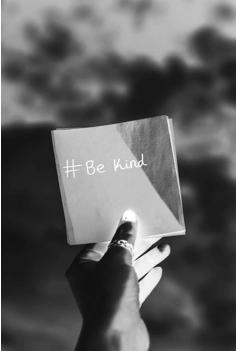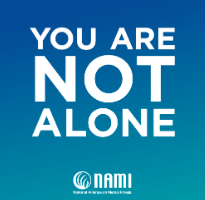We Can Fight to End the Stigma Together
By Erica Marriaga, MSW, LCSW

Have you ever watched One Flew Over the Cuckoo’s Nest, A Beautiful Mind, Halloween, Girl Interrupted, or Joker? If you answered yes, is there a common theme you might notice?
The portrayal of certain characters played in these movies might be viewed as crazy, scary, or do not belong in normal society, resulting in stigma. Stigma is associated with receiving support for depression, anxiety, or life stressors.
The month of May is dedicated to educating, increasing awareness, and normalizing the courage it takes to find support for mental illness.
What is the difference between Mental Health and Mental Illness?
According to the American Psychiatric Association, Mental health is the foundation for emotions, thinking, communication, learning, resilience and self-esteem. Mental health is also key to relationships, personal and emotional well-being and contributing to community or society.
Mental Illness refers collectively to all diagnosable mental disorders — health conditions involving significant changes in thinking, emotion and/or behavior and distress and/or problems functioning in social, work or family activities.
“Millions of people are affected by mental illness each year. Across the country, many people just like you work, perform, create, compete, laugh, love and inspire every day.”
According to the National Alliance for Mental Illness:
- 1 in 5 U.S. adults experience mental illness
- 1 in 20 U.S. adults experience serious mental illness
- 17% of youth (6-17 years) experience a mental health disorder

Early Warning Mental Illness Signs for Adolescents, and Adults
Adolescents and adults might experience the following:
- Worry or Fear
- Feeling excessively sad or low
- problems concentrating and learning
- Extreme mood changes
- Prolonged or strong feelings of irritability or anger
- Avoiding friends and social activities
- Changes in sleeping habits or feeling tired and low energy
- Changes in eating habits such as increased hunger or lack of appetite
- Changes in sex drive
- Difficulty perceiving reality (delusions or hallucinations, in which a person experiences and senses things that don’t exist in objective reality)
- Overuse of substances like alcohol or drugs
- Multiple physical ailments without obvious causes (such as headaches, stomach aches, vague and ongoing “aches and pains”)
- Thinking about suicide
- Inability to carry out daily activities or handle daily problems and stress

Early Warning Mental Illness Signs for Children
- Changes in school performance
- Excessive worry or anxiety
- Hyperactive Behavior
- Frequent Nightmares
- Defiance or aggression
- Frequent temper tantrums
How You Can Help If You Spot These Warning Signs
Ask yourself these questions to ensure you are taking care of your mental health.
- Are you sleeping 7-8 hours?
- Are you eating at least 3 meals per day?
- What do you do to stay active? Walking, jogging, spending time in nature?
- Are you taking care of your physical health holistically or seeing a MD when ill?
- Are you avoiding mood-altering substances?
- Are you initiating self-care and building confidence each day?
You can also help friends and family support their own mental health by asking them the same questions.
Help End the Stigma
There are many charities and organizations that work to end the stigma surrounding mental health treatment. Many of these may have local chapters where you can get involved. These are a few of our favorites:

The Exceptional Wellness Walkers have joined forces with NAMI to help break the stigma. Remember, there is NOTHING wrong with seeking therapy. Mental health is important.
It takes one minute to help spread the word!
If you or a loved one are experiencing difficulties with maintaining a healthy lifestyle, a licensed therapist or counselor can help you take the first step.
Erica Marriaga is a proud fur-mama of her one-eyed rescue dog, Toby, and new puppy, Tucker. She loves to spend time with her husband and bond with her family, nieces, and nephews. Erica is passionate and enthusiastic about her role as a therapist.
Check out Erica’s professional bio here!
EWC has locations in Manalapan and Shrewsbury, NJ, and accepts a variety of insurances.
Email Us: info@exceptionalwellnesscounseling.com
Call Now: (908) 415-2042
NEXT STEPS & RESOURCES
- Are you ready to take your first step? Reach out to us.
- Do you feel your child may benefit from counseling during this time? Take the first step.
- Interested in online counseling? Learn more.
- Interested in Groups? Reach out to us
- Resources
- National Institute on Mental Health
